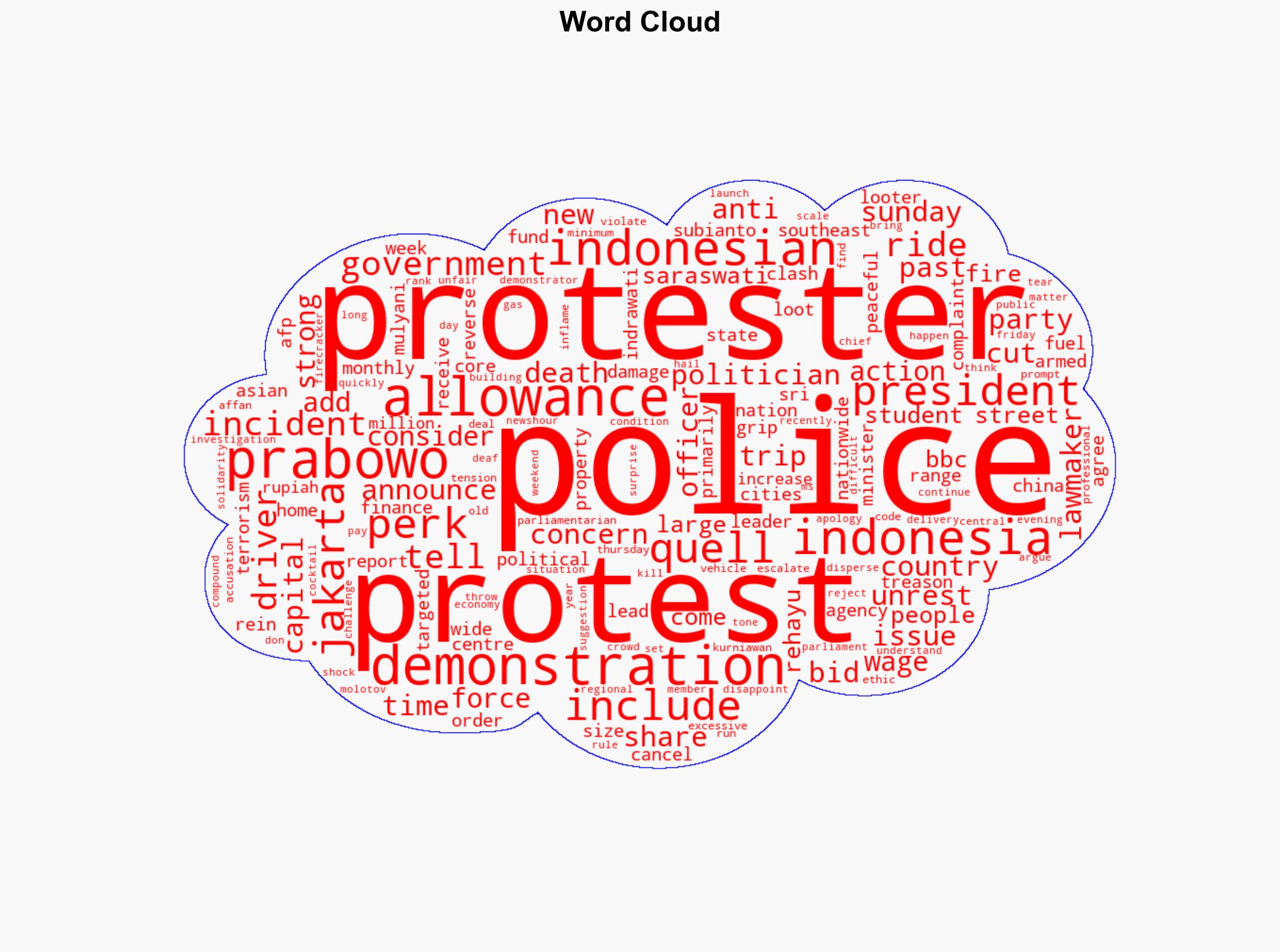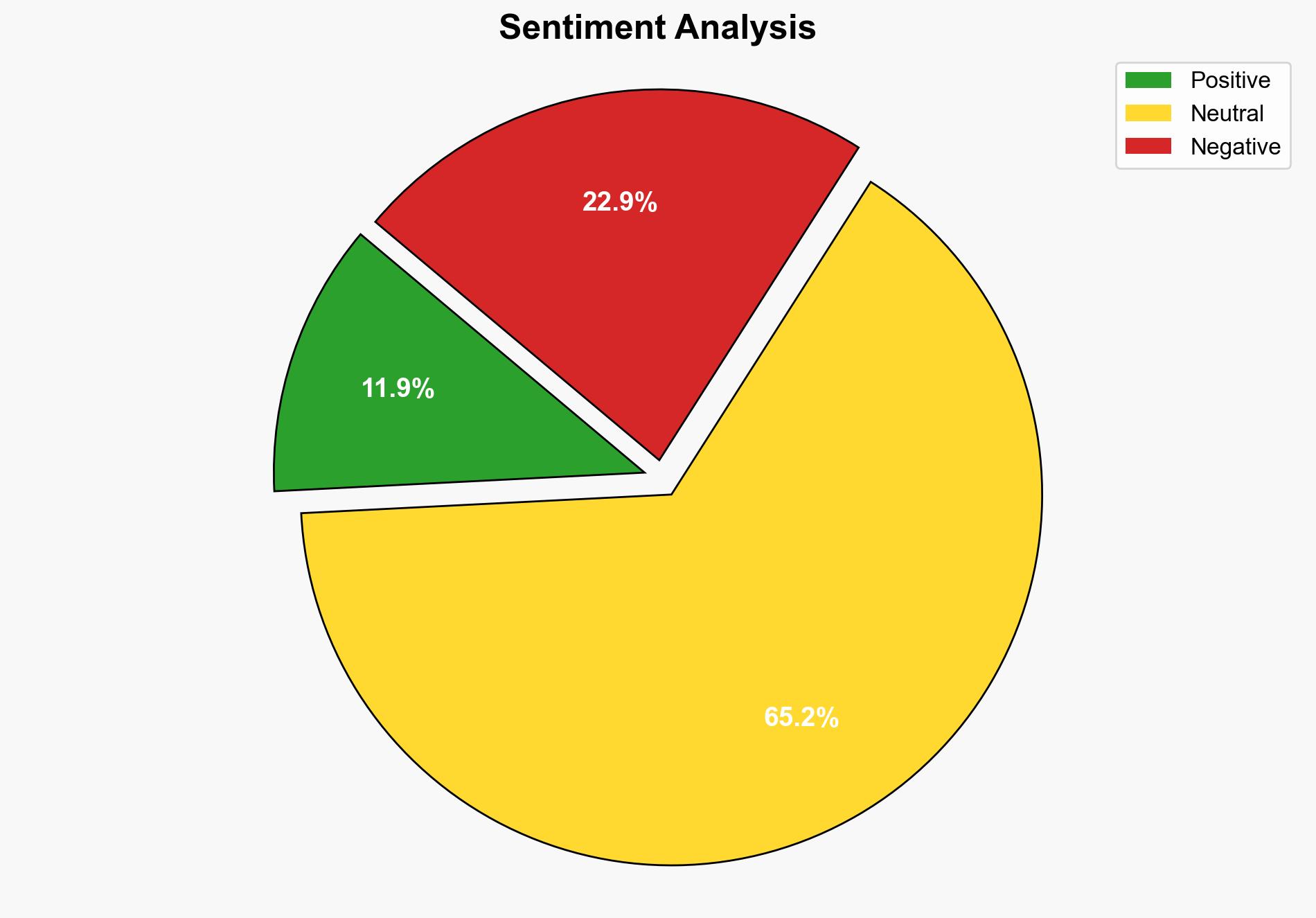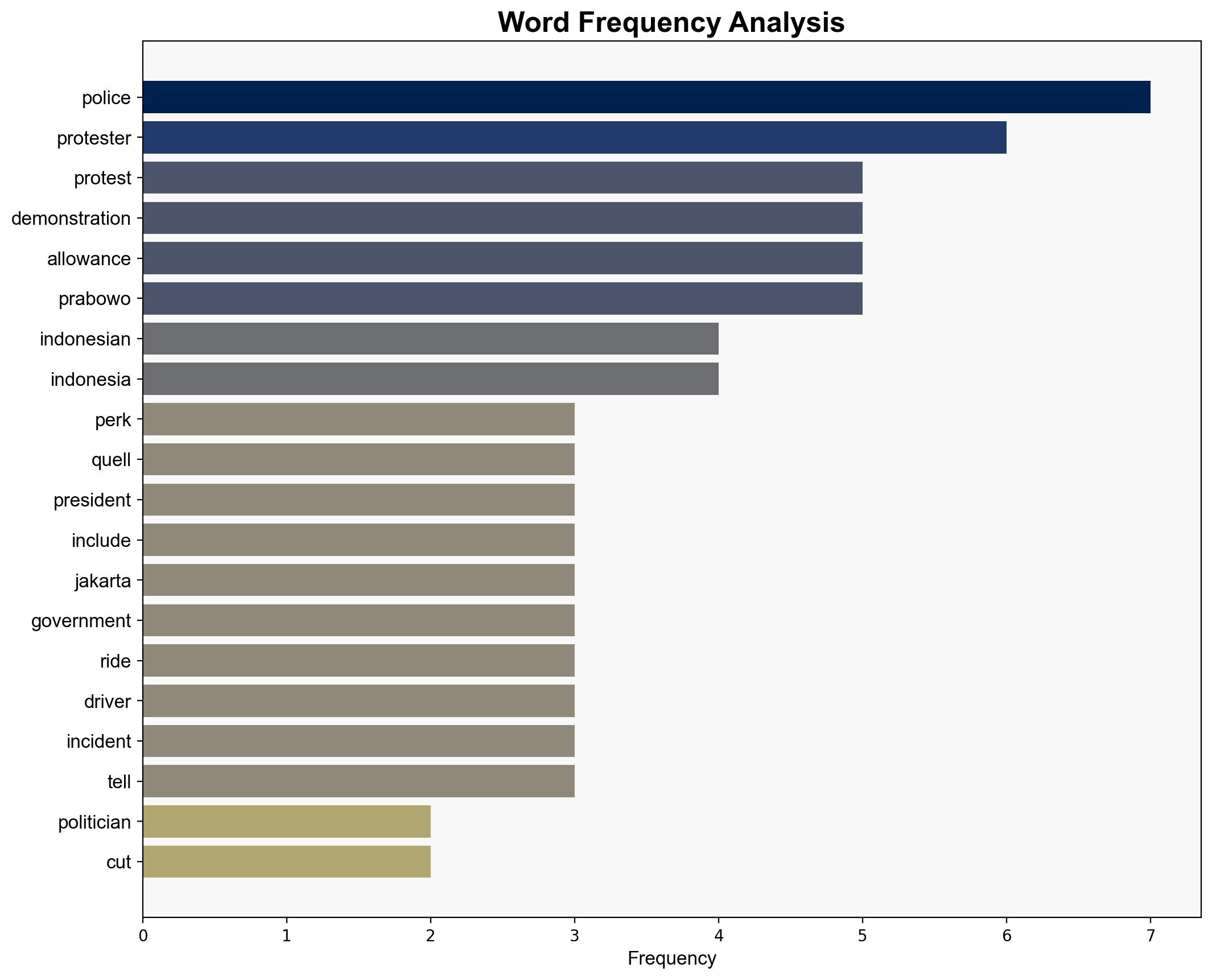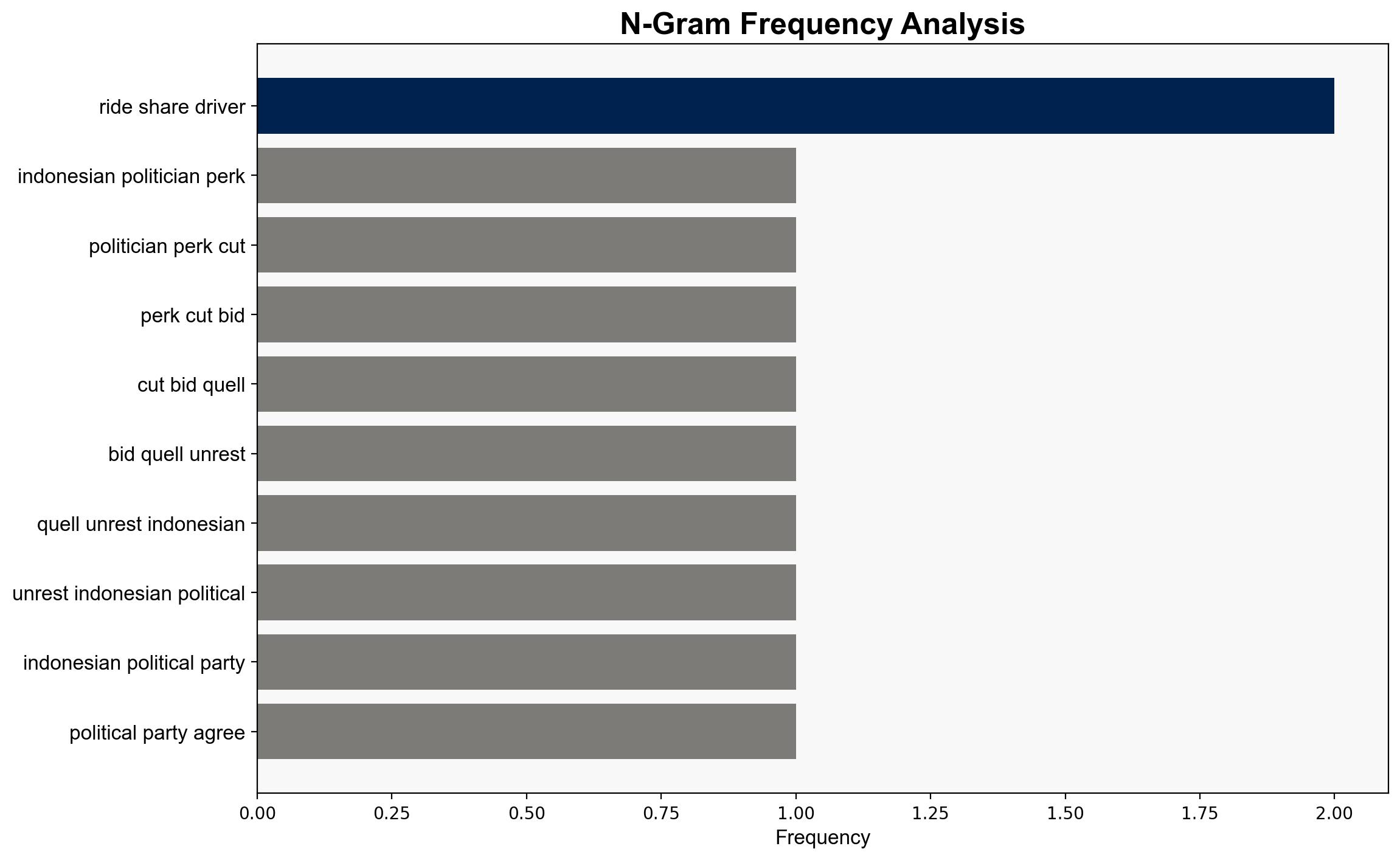Indonesian politicians to have perks cut in bid to quell unrest – BBC News
Published on: 2025-08-31
Intelligence Report: Indonesian politicians to have perks cut in bid to quell unrest – BBC News
1. BLUF (Bottom Line Up Front)
The strategic judgment is that the Indonesian government’s decision to cut political perks is a tactical move to address immediate unrest rather than a genuine effort to resolve underlying socio-economic issues. The hypothesis that the government is primarily focused on short-term stabilization is better supported. Confidence level: Moderate. Recommended action: Monitor the situation for signs of deeper policy changes or continued unrest, and engage in dialogue with civil society to address root causes.
2. Competing Hypotheses
Hypothesis 1: The Indonesian government’s decision to cut political perks is a genuine attempt to address public grievances and prevent further unrest.
Hypothesis 2: The decision is a superficial measure aimed at temporarily quelling unrest without addressing the deeper socio-economic and political issues fueling the protests.
Using ACH 2.0, Hypothesis 2 is better supported due to the timing of the announcement amidst ongoing protests and the lack of comprehensive policy changes addressing the protesters’ broader demands.
3. Key Assumptions and Red Flags
– Assumption: The government’s announcement will effectively reduce unrest.
– Red Flag: The protests are fueled by deep-rooted issues such as low wages and corruption, which are not addressed by cutting political perks.
– Potential Bias: Over-reliance on short-term measures may indicate a misunderstanding of the protesters’ motivations.
– Missing Data: Detailed plans for addressing the broader socio-economic grievances are not provided.
4. Implications and Strategic Risks
– Economic: Continued unrest could disrupt economic activities, particularly in urban centers.
– Geopolitical: Prolonged instability may affect Indonesia’s regional influence and investor confidence.
– Psychological: Failure to address core grievances could lead to increased radicalization and distrust in government institutions.
– Escalation Scenario: If protests continue, there is a risk of harsher government crackdowns, potentially leading to international condemnation and further unrest.
5. Recommendations and Outlook
- Engage with civil society leaders to understand and address core grievances.
- Develop a comprehensive socio-economic reform plan to address issues such as wage disparities and corruption.
- Scenario-based Projections:
- Best Case: Government enacts meaningful reforms, leading to reduced unrest and increased public trust.
- Worst Case: Protests escalate, leading to violent clashes and international intervention.
- Most Likely: Temporary reduction in unrest, with potential for resurgence if core issues remain unaddressed.
6. Key Individuals and Entities
– Prabowo Subianto
– Sri Mulyani Indrawati
– Affan Kurniawan
– Rehayu Saraswati
– Muzammil Ihsan
7. Thematic Tags
national security threats, socio-economic reform, civil unrest, regional stability





